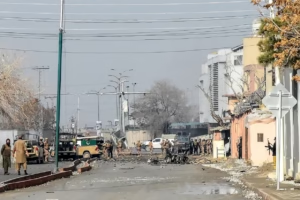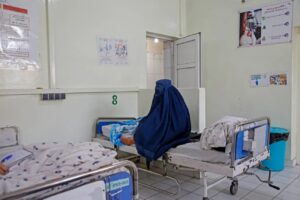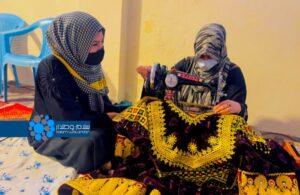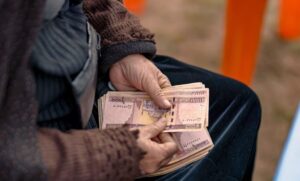KABUL (SW) – A number of Afghan women say that the continued imposition of restrictions on them by the caretaker government of the Islamic Emirate has caused them to become more and more marginalized in the society.
Since over a year, women have been forced out from education and work via several different decrees. Some women consider these decisions to be marginalizing them. With its latest decree on women last moth, the Islamic Emirate closed women’s beauty salons all over the country and announced the cancellation of their licenses.
According to the information, based on this decree of the Islamic Emirate, around 12,000 women’s salons were closed and at least 60,000 women who worked in these salons were forced to stay at home. Some of these women say the beauty parlors were the only way to earn a livelihood for their family and children.
Nisa Saadati, who has been running a women’s salon in Kabul for about fifteen years, says that now that the salon is closed, she is forced to turn to begging to meet the needs of her family and her children.
She added: “I am a woman who takes care of all the expenses of the house and this is my profession, I have experience in it. My husband is sick, I used to meet all the household expenses in this way.”
In two years of the Islamic Emirate rule so far, Afghan girls lost the chance to participate in this year’s university entrance exam and were not only banned from going to university, but their jobs in domestic and foreign NGOs were also suspended.
Also, another restriction on Afghan women last year was that they were not given the chance to participate in the bar exam. Last year, the Ministry of Justice conducted the examination of advocates without the participation of women, in which 580 men participated in order to obtain a lawyer’s license.
The Islamic Emirate banned the admission of female students to universities according to a decree in January last year. Based on the figures of the United Nations Educational, Scientific and Cultural Organization or UNESCO, around 90 thousand female students have been deprived of education due to the closure of universities.
Continuing to impose restrictions on women, in November and March, Afghan women were forced not to work in domestic and foreign NGOs, and then they were banned from going to parks and sports centers.
Seema, a resident of Kabul city, says that once she went to a park with her fiancée and her mother, when the forces of the Islamic Emirate stoned her fiancée and drove them away. He added: “We didn’t go anywhere. Some time ago, I went for a walk with my fiancé and mother. My fiancé was beaten a lot, my mother was old, they didn’t care, they directed insults at us.”
At the same time, a number of female journalists also say that they are faced with gender discrimination in some areas and the sources do not come to meet them and talk to them.
Hawa Gul, a journalist of a news agency in Kabul, said: “Sometimes we are not allowed to participate in the program and meeting. I went to a meeting, a soldier treated me badly. He told me to go back.”
According to reports, with the imposition of restrictions on Afghan women, the number of women beggars has increased, and the cases of forced marriage of girls and suicide of women have also increased.
Soraya Pekan, a women’s rights, says that in the past two years, the Islamic Emirate’s decrees imposing restrictions on women have led to the backwardness of the society, and because of this, Afghan women have been marginalized. She added: “It is the duty of the government to serve and support the people. Continuing restrictions on women has had a negative psychological effect on women on the one hand, on the other hand it has caused the country to lag behind and isolated the government.”
However, Mohammad Sadiq Akif Mohajer, the spokesman of the Ministry of Promoting Virtues and Prohibiting the Evil, says that the ministry has imposed restrictions on those areas where, according to him, “Islamic rules were not taken into account.”
On the other hand, the spokesman of the Islamic Emirate, Zabihullah Mujahid, although has admitted that some decrees may have harmed some women, but he says that he is continuing to work on alternative ways.
The re-establishment of the Islamic Emirate and its continuous restrictions on Afghan women have led to their deprivation of their basic legal rights, and these issues have not only faced a number of girls and women with severe financial problems, but have also made them emotionally unstable.
ENDS






